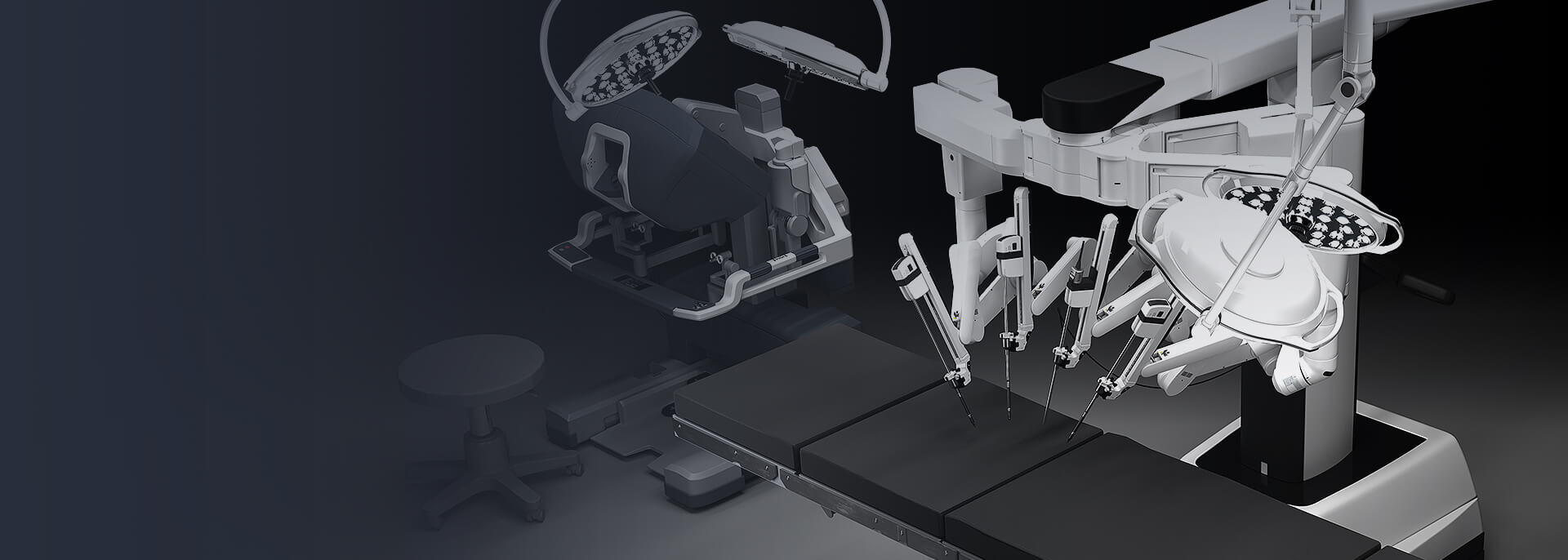Preparing for Robotic Surgery
Obtain and read your postoperative instructions prior to surgery so you will know what to expect. Plan to have family or a friend stay with you for a few days to help you during the immediate recovery.
Follow all preoperative instructions exactly. This may involve blood or urine tests, chest xray, electrocardiogram (EKG), ultrasound and/or CT scan. You may be asked to obtain medical or cardiac clearance with a primary care practitioner, internist or cardiologist to make sure your heart and lungs are safe for surgery and that all medical conditions are optimized.
Stop all blood thinners 7-10 days prior to surgery.
Blood thinners include aspirin products, ibuprofen (Advil, Naproxen, Bufferin, Alleve, Nuprin, Anacin, etc), clopidogrel (Plavix) and warfarin (Coumadin). If you have a serious heart or blood condition, follow instructions from your cardiologist or medical doctor regarding management of blood thinners.
Stop all herbal medications and vitamin supplements 10 days prior to surgery.
We often don’t know the effect of herbal medications and supplements on thinning the blood or their interaction with anesthetics. It is best to stop all of these 10 day prior to surgery to avoid any bleeding problems or medication interactions. It is particularly important to stop vitamin E supplements.
Nothing to eat or drink by mouth after midnight the day before your surgery.
No fluids, no water, no mints, no candy, no gum, no food and no coffee. The only exception is that you need to take morning medications for your heart or blood pressure with a small sip of water.
You may be asked to clean out the intestines or gut with a “bowel prep” a day or two before surgery. Cleaning out the intestines makes the intestines take up less space in the abdomen and pelvis, this allows more room and better access to the surgery site. If can also decrease the risk of an infection if there is injury to the intestine. A bowel prep may involve and clear liquid diet one to two days before surgery, laxative medications by mouth and/or enemas.
Start or increase the amount you exercise. This will make your heart and lungs strong to prepare for surgery. A healthy body also recovers faster from surgery. Goal is 20-30 minutes of cardiovascular exercise 3-5 times a week.
Lose weight if you are overweight.
A healthy weight makes access inside the body safer, makes the body better able to tolerate the positioning, makes surgery safer and faster, decreases the risk of complications during surgery, decreases the risk of wound infection and speeds healing.
Quit smoking.
If surgery is not for a month, quitting smoking improves lung function and oxygen-carrying capacity of the blood as well as a myriad of other benefits. However, if surgery is within two weeks, do not quit until after surgery to prevent increased mucous production in the respiratory tract.
Lead a healthy lifestyle.
A healthy body is more likely to have a safe surgery and quicker, uncomplicated recovery. A healthy lifestyle includes eating your vegetables and fruits, exercise and consider a multivitamin. Control your diabetes, blood pressure and cholestrol. Get plenty of rest to avoid getting a cough or cold prior to surgery which could result in having to reschedule when you are healthy.
Loraine Shares Her Experience
Contact us to request an appointment or ask a question. We're here for you.



